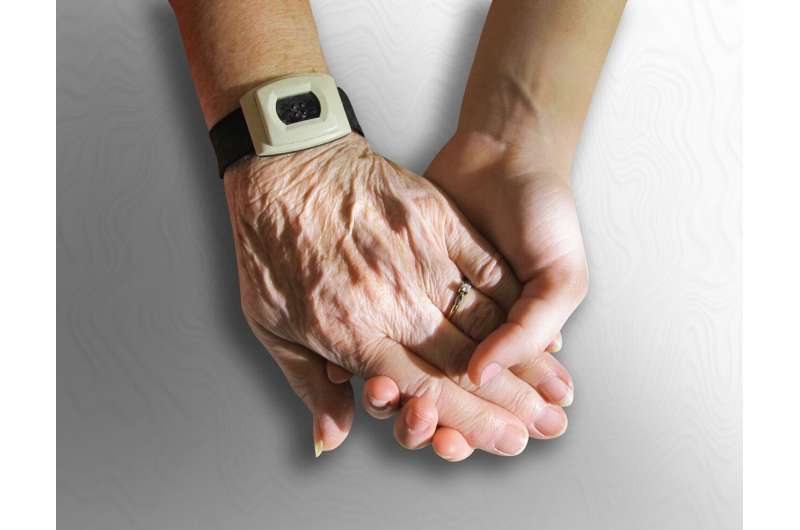This article has been reviewed according to Science X's editorial process and policies. Editors have highlighted the following attributes while ensuring the content's credibility:
fact-checked
peer-reviewed publication
trusted source
proofread
Study examines dementia caregiver's experiences and preparedness

Millions of family caregivers provide essential emotional, physical, and social care to people living with dementia. As the global population ages, people providing care for more than one family member across adulthood is becoming increasingly common. Yet little is known about the ways prior caregiving experiences shape an individual's future preparedness when it comes to caring for additional people living with dementia.
A new study led by Emily Mroz, a postdoctoral research fellow in the Yale Department of Internal Medicine's Geriatrics Section, and Amanda Piechota, a research assistant in the Yale School of Public Health's Social Gerontology and Health Lab, explores this issue and lays forth a grounded theory of how past experiences caring for a person living with dementia influence future caregiver preparedness. The findings were published in the Journal of the American Geriatrics Society on December 26.
Using information gleaned from 32 semi-structured interviews with midlife former caregivers of people with Alzheimer's disease and related dementias, the research team identified two dimensions of caregiver preparedness: caregiving confidence and caregiving insights. While some former caregivers described an increase in caregiving confidence that better prepared them for future care roles, others described a diminished sense of confidence characterized by self-doubt, fear of incompetence, and apprehension toward future care roles.
"Americans tend to have the mindset that every challenge can and should help us grow as people. In the case of family caregiving, there is an assumption that having been a caregiver will better prepare you to serve as a caregiver again, without exception," said Mroz. "This assumption neglects decades of research showing that caregiving takes a toll on caregivers, with psychological consequences that can sometimes persist after a care recipient has died. Our research shows that for some people, previous caregiving experiences are recalled in ways that boost their preparedness, but there is also a critical subgroup of caregivers who reflect on past caregiving experiences and say, "I just can't do that again.'"
The research team found that caregiving confidence and insights were largely guided by people's personal perceptions of their caregiving experience. How caregivers interpreted a difficult experience with their care recipient—as a growth opportunity or a point of failure—for example, impacted their confidence and potentially, their future preparedness level.
When a person enters a new caregiving role with diminished confidence, there may be negative consequences for both the caregiver's and the care recipient's well-being.
"Because caregiving is rarely a choice, if these people find themselves as caregivers again, now with a diminished sense of confidence, they may be quicker to reject the role or be unable to rise to their full potential as a caregiver," Mroz said. "Our goal is to develop ways to identify these caregivers before new caregiving roles emerge and help them to reframe their perceptions of their personal abilities as caregivers."
Therefore, the researchers advise that a multidimensional assessment of future caregiver preparedness is needed to screen dementia caregivers in clinical settings and to research links between preparedness and outcomes in research settings. This would improve upon an existing measure developed over 30 years ago, which is based largely on measuring general caregiving skills not specifically tailored to dementia care.
More information: Emily L. Mroz et al, "Been there, done that:" A grounded theory of future caregiver preparedness in former caregivers of parents living with dementia, Journal of the American Geriatrics Society (2022). DOI: 10.1111/jgs.18209





















